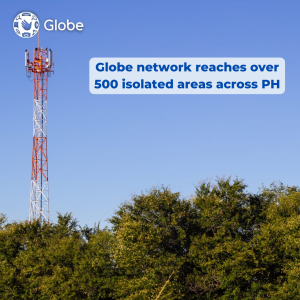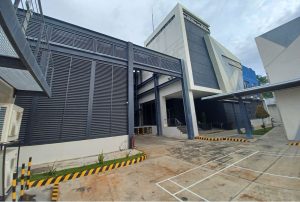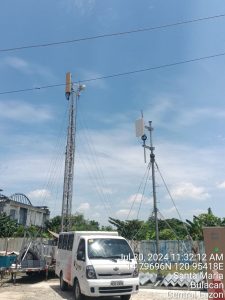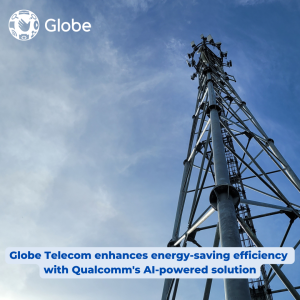
Globe continues to spearhead efforts to bridge the digital divide by bringing connectivity to remote areas across the country, with its network now reaching over 500 Geographically Isolated and Disadvantaged Areas (GIDAs).
By helping improve the country’s digital infrastructure, Globe connects remote communities, enabling residents to access vital online services, educational resources, and economic opportunities regardless of their location.
“At the heart of our mission is connecting the unconnected to build an inclusive, sustainable, and digitally-enabled nation. By dismantling barriers and unlocking opportunities, we are driving economic and social progress for all,” said Ernest Cu, Globe President and CEO.
Globe’s expansion to GIDA is in line with its push for inclusive connectivity, crucial at a time when access has become a life-enabler. The company has poured Php 265 billion in capital expenditure and Php 236 billion in operational expenses over the past three years to boost its network capabilities.
Even as it sustains its network buildup, Globe is engaging the government to jointly boost the country’s connectivity infrastructure.
The recently created Connectivity Plan Task Force (CPTF), which Cu leads, is working on complementing DICT’s rollout of internet infrastructure in Geographically Isolated and Disadvantaged Areas (GIDAs), while advocating for policies essential to the development of telco infrastructure.
The CPTF is under the Private Sector Advisory Council (PSAC), which President Ferdinand “Bongbong” Marcos Jr. established to foster public-private sector collaboration.
“Bringing connectivity to the entire Philippines, including remote areas across the country, requires collaboration between the private sector and the government. Through this Task Force, we hope to synergize our efforts so that every corner of the country is connected, and Filipinos are able to enjoy the benefits of digital connectivity in an equitable way,” said Cu.
PSAC earlier urged the government to allocate at least Php 240 billion to enhance internet infrastructure, emphasizing the need for a commercial partnership to build 35,000 new cell sites.
The Council has also requested an annual allocation of at least Php 60 billion for the Department of Information and Communications Technology (DICT) to lease towers, build last-mile facilities, and optimize existing telco infrastructure. This funding is necessary to provide internet access to 125,000 public facilities, including schools, hospitals, and health centers, over the next four years.
Moreover, PSAC highlighted the importance of strictly implementing Executive Order No. 32 to streamline and expedite the permitting process for telco infrastructure— a crucial step in overcoming roadblocks to network expansion.
He called on local government units to be partners in enhancing connectivity by lowering barriers to its expansion, including still prevalent bureaucracy that delays builds.
“We are very grateful that the President issued Executive Order No. 32 in July last year to streamline the permitting process for ICT infrastructure. But nearly a year since, we still experience barriers on the ground. We hope that LGUs will honor the President’s order to the letter and enable, instead of hinder, the enhancement and expansion of connectivity across the country,” he said.
Looking ahead, Globe remains steadfast in its mission to empower communities through digital technology. The company works closely with the government and the private sector to ensure that every Filipino can enjoy the benefits of digital connectivity.
To learn more about Globe, visit https://www.globe.com.ph/.











